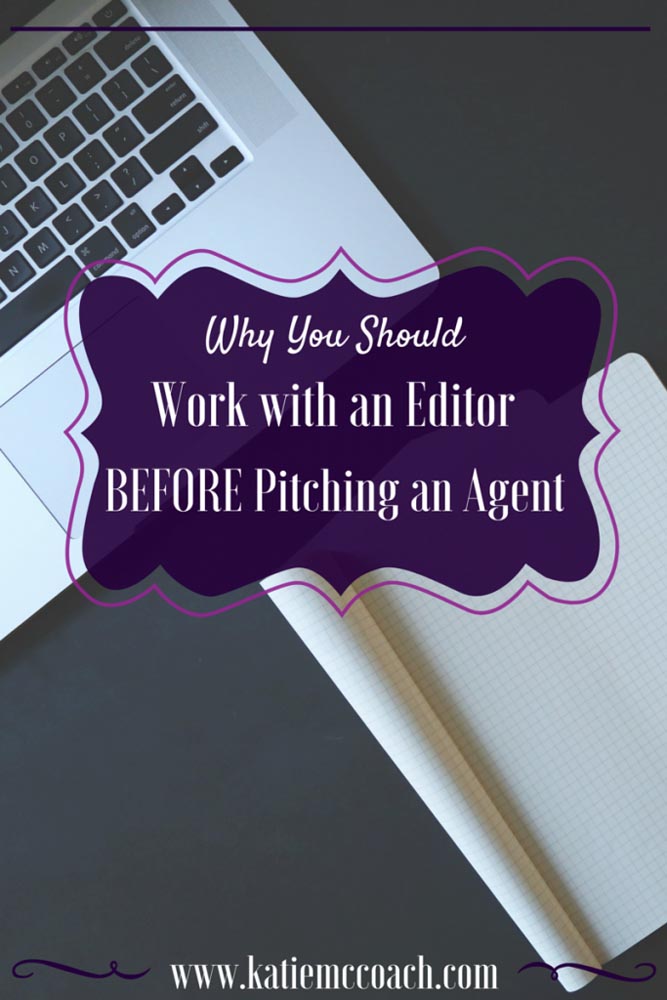 Sending your manuscript out to agents and editors for possible representation and publication is exciting, but mostly terrifying. You hope that your query will make a good enough impression and that an agent will be intrigued and request the full manuscript!
Sending your manuscript out to agents and editors for possible representation and publication is exciting, but mostly terrifying. You hope that your query will make a good enough impression and that an agent will be intrigued and request the full manuscript!
How do you guarantee yourself the best chance of hooking — and then landing — an agent? There are a lot of steps involved—and for good reason! Agents want to work with someone who is a fantastic writer and a professional. Each step of the process is critical.
So, say you have a fantastic query letter and the agent requests the first 50 pages. Hurray! That’s awesome. BUT you didn’t have your manuscript professional critiqued, or even read by beta readers. You didn’t review the copy for errors in spelling, punctuation, grammar. Basically, your manuscript is not complete. Your wonderful “big shot” just got a big thumbs down.
It’s a sad scenario and I hope this doesn’t happen to you, but unfortunately I know it has happened to writers before. See, it is not an agent’s job to help you put together a complete manuscript. But you know who can help you do that? An editor.
Working with an editor before pitching an agent can make a huge difference in your chance at representation. No, it is still not a guarantee you will get represented, but it is a guarantee that you’ll be giving yourself the best chance.
Here are a few things to keep in mind, and why working with an editor prior to pitching is in your best interest:
You don’t have limitless chances of pitching agents – make the most of your first reach.
Many agents have specific guidelines that state they will not look at a pitch twice (same manuscript). Some may be more flexible, if there was promise, or if they were somewhat interested and invited you to try again in the future…but wouldn’t you rather something stick the first time? It is your first impression—make it your best one by being certain that what you are sending is your best effort. A second set of professional eyes, from someone who knows the business and how agents think, can set you on a confident path.
Does your query entice the reader?
This is something an editor can help you determine. They can give you feedback on your query letter (and synopsis) to make sure it is strong, to the point, professional, and well-written. Your query is the first and most important piece of pitching, it’s what will get an agent to say, “More.”
Are your first 50 pages strong enough to grasp an agent and keep them?
Immediately in the first 50 pages, agents look for the typical no-no’s. Is the writing strong? Does the character have a unique voice? Is it clear what the story is about, who the protagonist is, what the goal is? Have you written in the right genre and for the right target audience?
Agents want a manuscript that is as complete as possible.
They can’t afford to develop you (your work). Remember they don’t get paid until your book sells. And that could be months. Already they are taking a risk in working with a new writer and hoping they can get a publisher interested, so spending time working on revisions with you makes that risk steeper.
A good editor is there to help you develop your work—to help you create the best story and writing for publication. They give you the best chance. Remember, when you succeed, the editor, agent, and publisher succeeds.
What has been your experience in pitching? Have you worked with an editor before pitching? Any questions? Ask below!
Or, let me know what you think via Twitter! @KatieMcCoach
Don’t miss a post! When you sign up for the KM Editorial monthly newsletter you’ll receive a free downloadable Guide to Getting Published.


 Download your free copy of these 8 tried-and-true strategies to stop self-doubt and imposter syndrome as a writer. And, build the power to resist it in the future.
Download your free copy of these 8 tried-and-true strategies to stop self-doubt and imposter syndrome as a writer. And, build the power to resist it in the future.
Hi Katie! Per our permission situation, I scheduled this article as a guest post to be featured on Feb 16th! As usual, I’ve included credit to you, bio, and a link back to your blog.
Awesome, thank you Ryan!